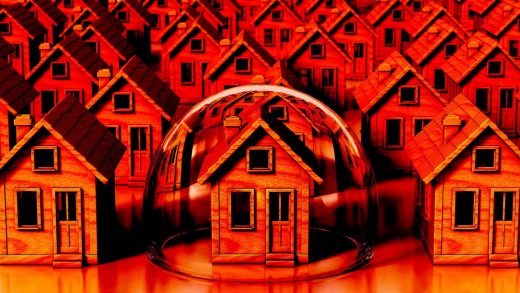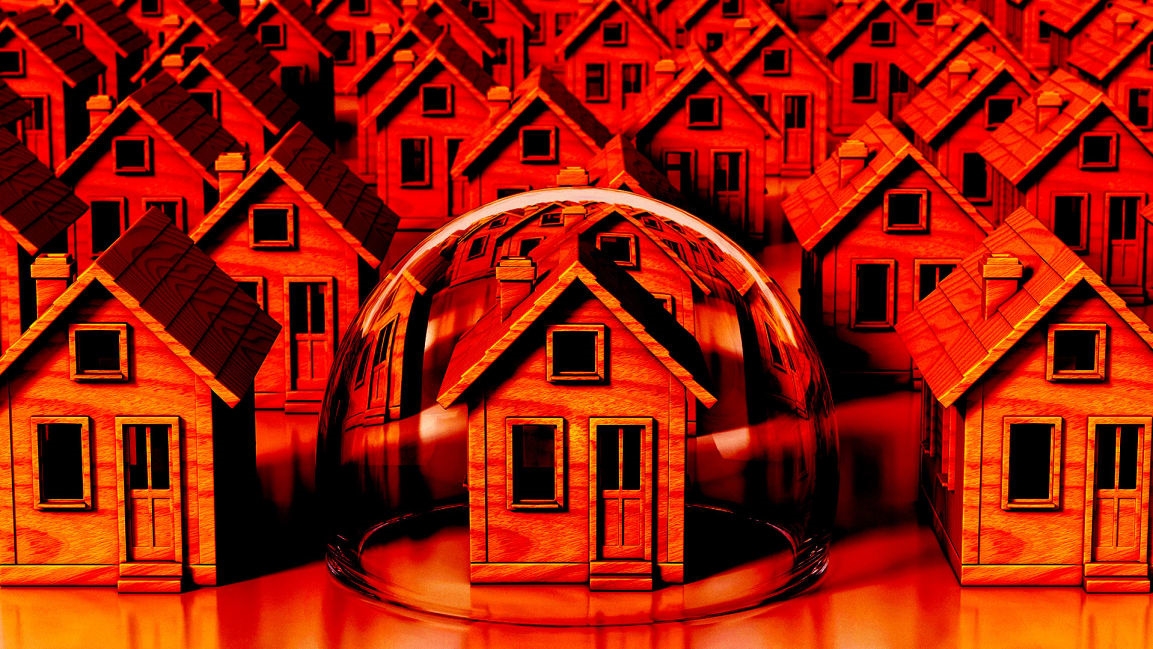Will the housing market crash? Why rising interest rates may not lower home prices
Interest rates are up, but interest from prospective homebuyers is not yet down. With the Fed expected to raise interest rates further this week, a big question is what effect that will have on the housing market.
The rise in home prices has been a sight to behold, with the most recent data from the S&P CoreLogic Case-Shiller U.S. National Home Price Index showing that between February 2021 and February 2022, home prices increased 19.8%. In some cities, such as Phoenix and Tampa, prices increased more than 32% year over year. Those price increases are partially what spurred the Fed to raise interest rates in mid-March for the first time in three years.
The average rate for a 30-year fixed-rate mortgage is now 5.1%, according to data from Freddie Mac. That’s an increase of 1.25% since March 3, when rates were 3.76%. And remember, the Fed is expected to bump rates up again, possibly by as much as half a percentage point. Raising rates is designed to lower demand for mortgages, by making them more expensive for prospective homebuyers. In recent weeks, the data suggests that it’s worked: The volume of mortgage applications fell 8.3% last week compared with the prior week, per data from the Mortgage Bankers Association. Refinance applications were down 9% week-over-week, and down 71% from a year ago.
So, while rate hikes appear to be having the intended effect on mortgage applications, the outstanding question is whether that will also have an impact on prevailing home prices. The answer appears to be no, says Nadia Evangelou, senior economist and director of forecasting at the National Association of Realtors (NAR). “We expect home prices to keep rising,” Evangelou says. “We [would normally] expect higher mortgage rates to lower housing prices, but I don’t see that happening—we will see lower demand, but not necessarily lower prices.”
Nationally, she says, NAR expects home sales to drop 9% during 2022, compared to 2021. But even if that happens, average prices will still be around 5% higher than they were in 2019, prior to the pandemic throwing the market into chaos. The main problem, she says, is that there’s a lack of inventory nationwide. There are simply too many buyers, and not enough homes—a problem that can’t be fixed overnight.
“The problem is that we have a severe home shortage. We under-built for a decade, and there are fewer homes for sale,” Evangelou says. Plus, she adds, interest rates are still historically low. With that in mind, it’s possible that rising interest rates will have less of an effect on prices than they did in prior decades. For instance, in early 2008, just prior to the housing crisis and Great Recession, interest rates for a 30-year fixed-rate mortgage were around 6%. In early 2000, they were above 8%. And back during the early 1980s—the last time inflation rates were similar to what we’re seeing today—rates peaked at more than 18%.
If there is any consolation for homebuyers, it’s that housing prices should at least slow down. Although, again, it’s not expected that they’ll fall. Evangelou notes that until issues related to housing supply are sorted out, it’s likely that high prices will prevail and that even steep rate hikes aren’t going to be enough to overcome the throngs of buyers willing to wave contingencies and fork over cash to secure a home.
“Demand is strong and will remain strong,” she says. “The buyer pool is just too deep.”
(25)



